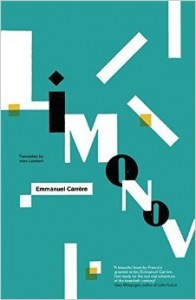My Thoughts and Reading in August 2018

August is Women in Translations month, which means there is a big influx of people reading translations, even the publishers and big bookish media seem to promote the event. This feels like a double edge sword for me, while I love that more people are reading from my corner of the bookish world, there are plenty of cringe worthy moments to be had as well. There are people who like to make themselves the authority of the topic despite showing no interest previously in the male/female balance in the world of translations. Admittedly this reaction I have is just my grumpiness coming to play and in reality I should be thankful to see so many people participate in a month dedicated to reading women in translations. For those that did not want to dedicate a whole month, some BookTubers even put together a Women in Translations readathon, but I will not be discussing my problem with readathons here.
I had planned my reading month, thinking that while vacationing around Tasmania I would have more reading time than expected. I packed four books to read during the trip, plus a kindle but I only managed to complete one novel during that entire trip, and it was not even a book I was enjoying. Prior to my vacation, I had read Convenience Store Woman, a book that I still think about to this day. The hype surrounding this book is justified. I also read The Door with my wife, which was discussed on the latest episode of Lost in Translations. Before my trip, I scheduled six reviews for my blog, all being women in translations. I am pleased to say, that I am pretty much up to date with reviewing, as I have made the choice not to review every book I read. I want to spend more time writing essays and improving my writing abilities so while reviews seem to be an important aspect of my blog, I hope this means that I will write more.
Tasmania was an amazing experience, I have not been there before and I really enjoyed the cold weather. I got to experience snow falling for the first time, most non-Australians might think this is not as special as I make it out to be. The book I read while away was Oneiron; it was not for me, and I really struggled to get through it. I understand what Laura Lindstedt was trying to do by putting these women in this situation and have them reflect on their lives but I was disappointed. I did however start Aracoeli and I am having a much better experience. Elsa Morante is a wonderful writer and for those who do not know her, she is one of the authors that influenced the writing of Elene Ferrante.
During my trip I visited bookstores every chance I got, which did leave me with a much heavier bag by the end of the trip. I wanted to limit my purchasing by focusing on expanding my women in translation collection but I failed at that. So many stores seemed to have a very limited selection for translations, which is fast becoming the biggest downside of my reading niche. The feeling of leaving a bookstore empty handed is heart breaking for a book lover. However, if I started to complain about the amount of books I did end up purchasing, I would be lying to myself. I have so many amazing books to read, I just need to find the time.
After Tasmania we stopped in Melbourne for the weekend and attended the Melbourne Writers Festival. This year had an amazing line up and I think I want to write about what I saw in a different post. The festival has inspired me to be more active in my blogging and to write more pieces, so let’s see if it pays off. The final book I read before going back to work was Sofi Oksanen’s novel Purge. Previously I read When the Doves Disappeared which I liked but did not love, honestly, I think Purge is a far superior novel. Because it was Women in Translations month, I think it is necessary to check my reading stats to see if I have a balanced reading life this year. I am pleased to say that 75% of my reading have been translations, which is indicative of my passion. With 52% being books written by women. I hope to maintain this balance, but I know how easy it is to have the statistics change.
Happy reading everyone.

 Title: Vernon Subutex, 1 (
Title: Vernon Subutex, 1 ( Title: Limonov (
Title: Limonov (